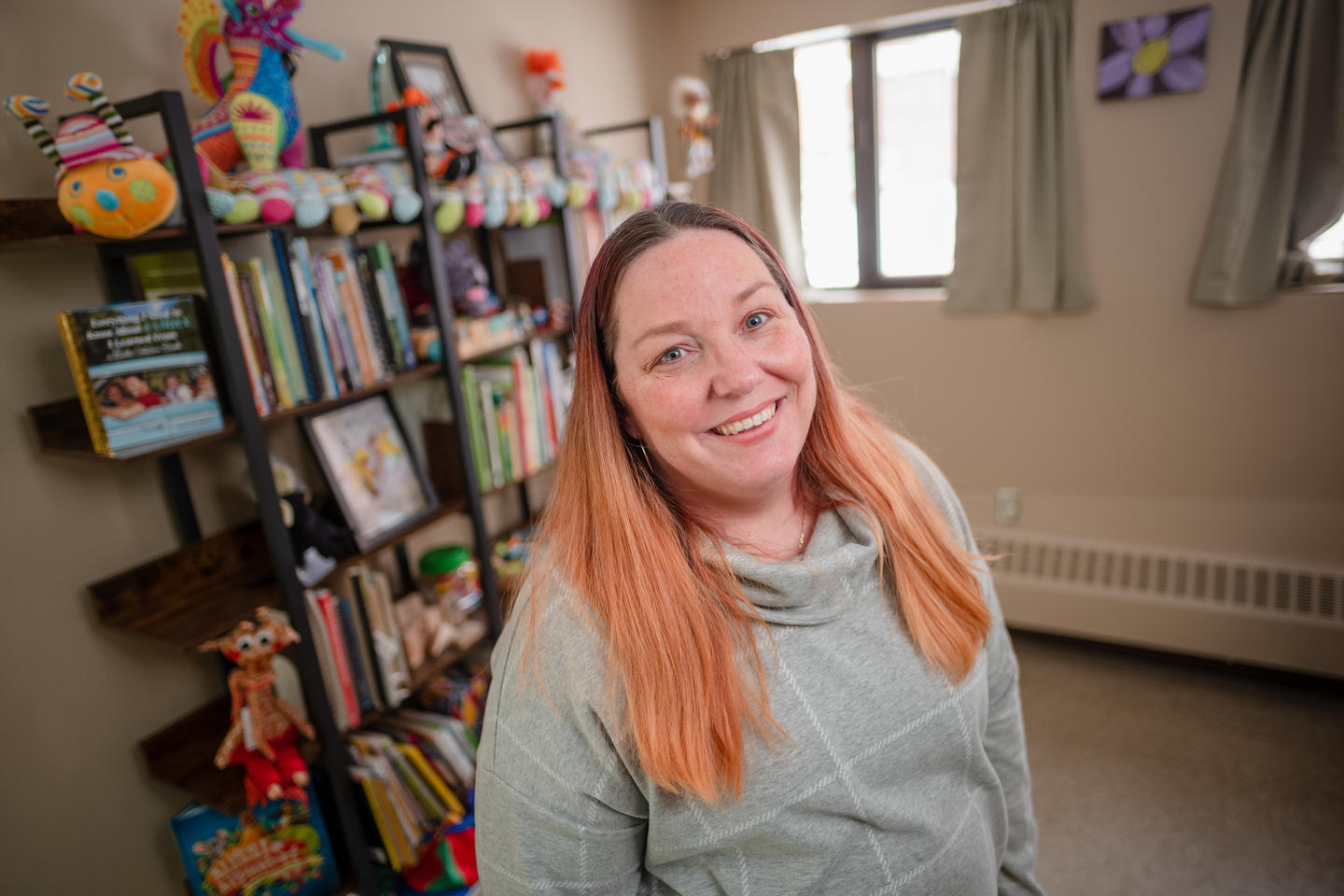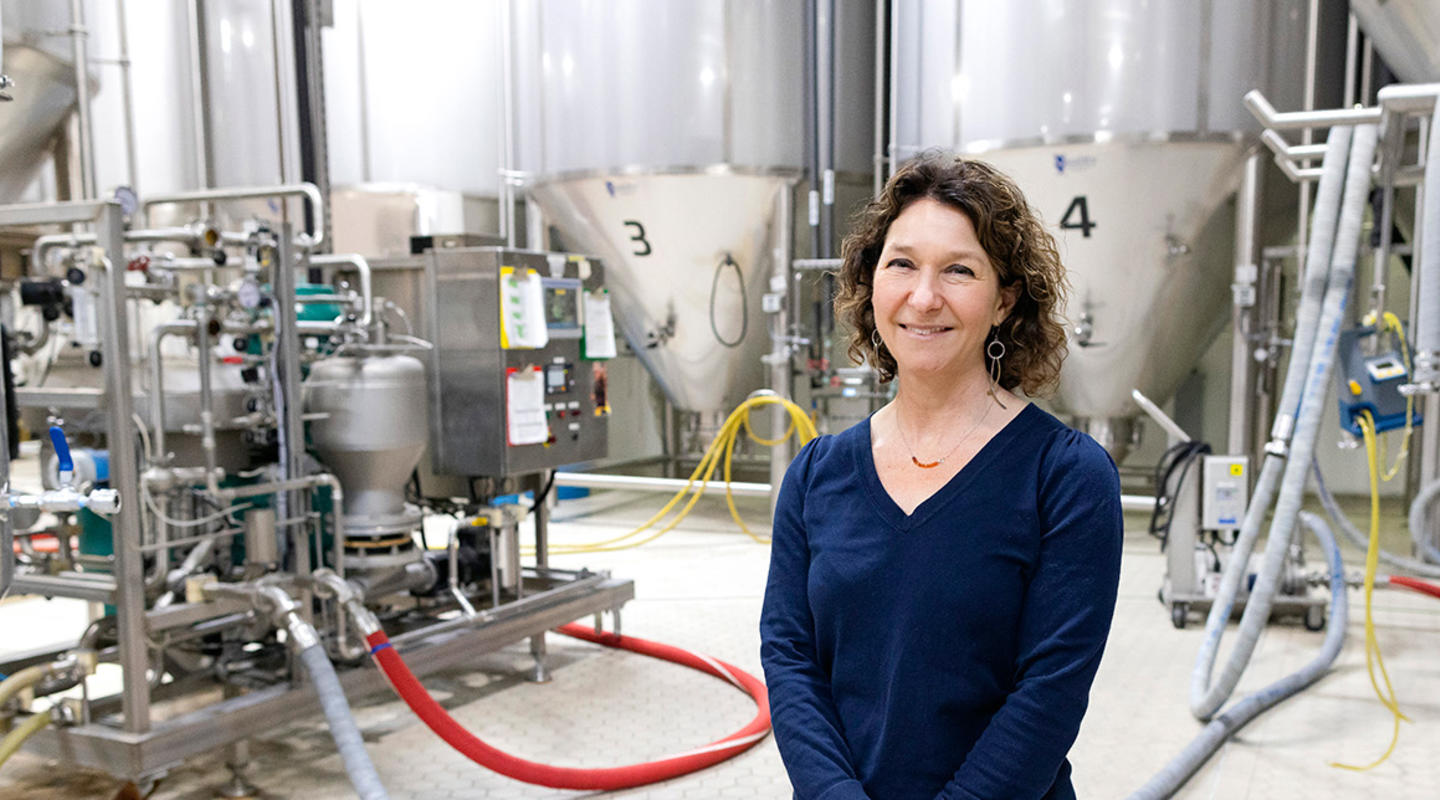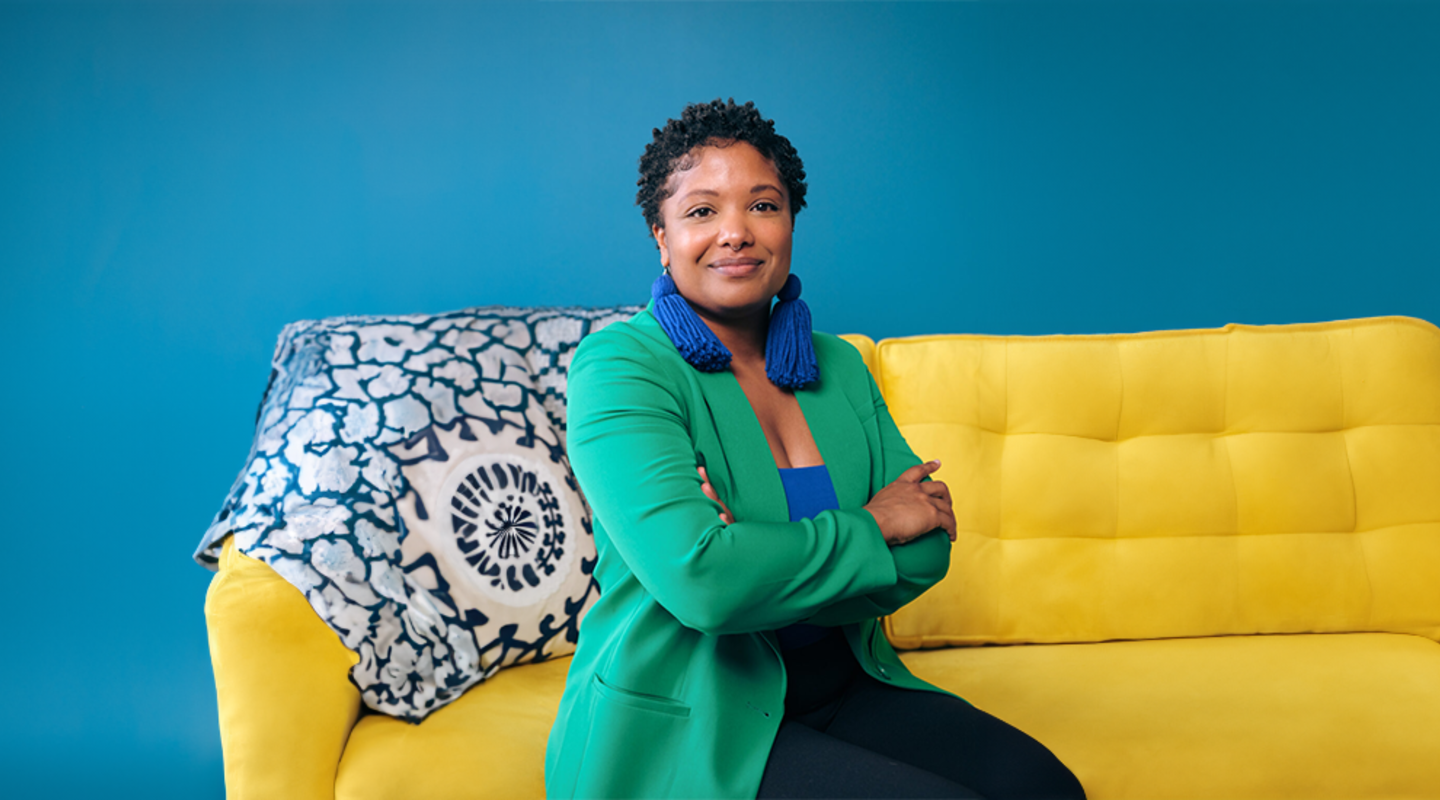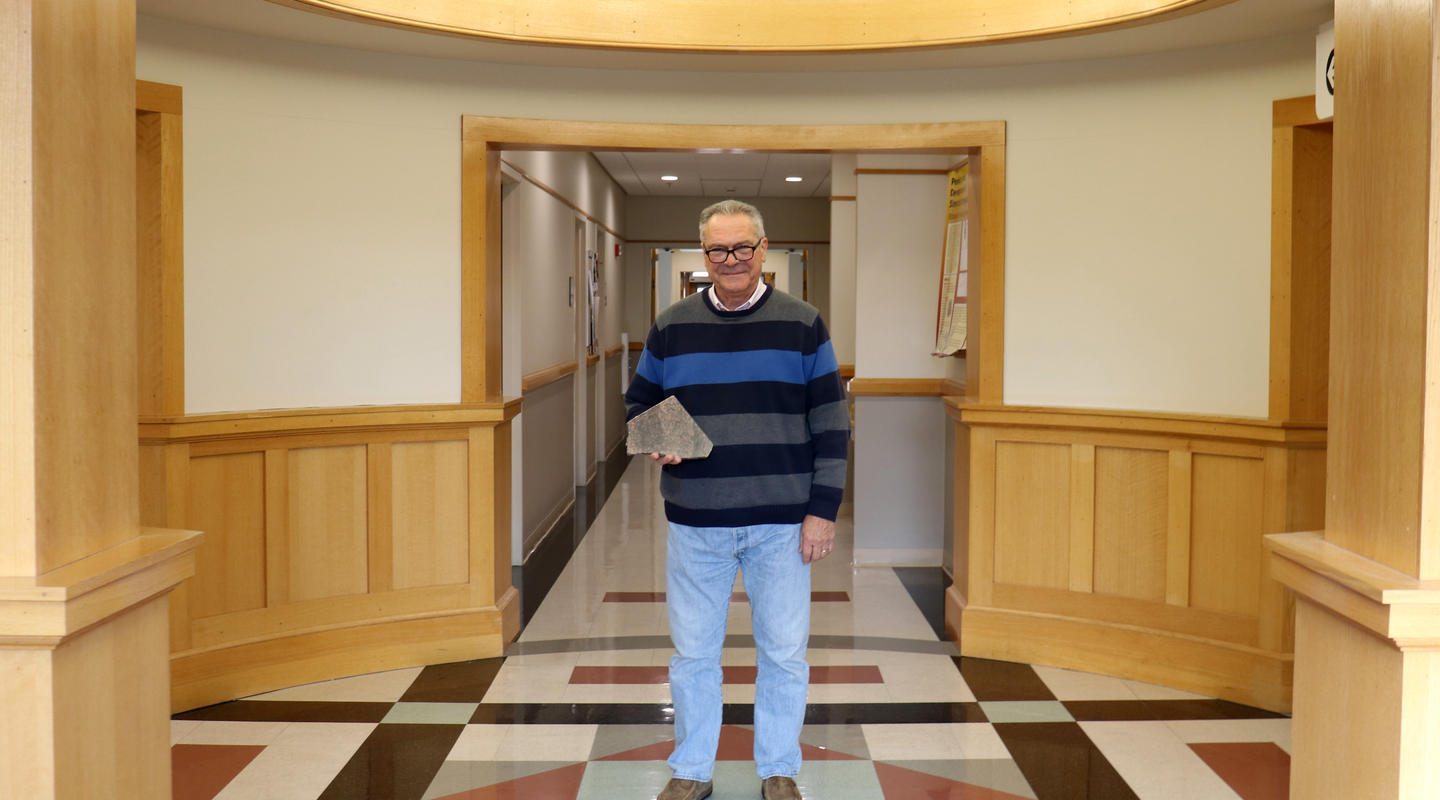
UMD Professor Jodie Riek says: “I have the mind of a young child. I get bored quickly. If I’m bored teaching something, then they [students] must be bored learning it.” Photo: Alexander Messenger
Early in the winter of 2022, Jodie Riek took a walk through the woods with a group of preschool children at a nature preschool in Duluth. The hike started with the children warning each other about staying on the path, but the conversation changed when the first snowflakes began to fall.
“Look,” a boy called out. “I’ve got one with needles.” Everyone examined the flakes that had collected on their jackets. Another student said, “Look at all the branches on this one.” Riek called it a “wonderful moment of discovery. All the kids looked at the snowflakes and noticed how they formed.” It also was a learning opportunity.
Play to learn
Kids do best when they play often, and research shows that play is critical to learning. “If you can encourage game-playing to teach math and other subjects, kids will enjoy learning for the rest of their lives,” Riek says.
As the University of Minnesota Duluth’s Paul and Mary Ann Schmidt Endowed Professor in Early Childhood Education, Riek’s primary directive is to write the plan for a new early childhood education major that is innovative and that addresses the community's needs. Learning through play, or “play pedagogy,” will be integrated into the program. “We want to be at the forefront of the early childhood transformation that is now occurring in the U.S.,” she says.
Undergraduate degree programs in the early childhood field typically focus on prekindergarten through third grade. But Riek believes using play in learning shouldn’t be limited and that it may look different in a child care center than it does in a nature preschool, for example. “How can we look at the full field of early childhood from birth through third grade? That’s a really large space,” she says. “How do we make sure our students are prepared for those types of careers?”
A misunderstood method
Riek, who is a member of the World Forum Foundation on Early Care and Education, says getting administrators and families to understand the importance of play can be a challenge.
“It’s misunderstood,” she says, adding that it’s often a topic of conversation at the foundation’s meetings. “Yes, we need to make sure our teachers know and meet the standards required by the Minnesota Department of Education,” she says. “But they need to [meet those standards] in a developmentally appropriate manner that reaches each child even if they’re part of a larger group.”
One way to do that, she says, is by using games. “You’d be amazed how much of the curriculum standards you can hit in a board game.” She says she would put together notes for parents about what they can achieve by playing a particular game with their children. “I’m trying to be really thoughtful about ways to get joy into learning,” she says.
In addition to training new teachers and encouraging undergraduate research in the field, Riek would like to make her courses available to professionals already working in early childhood education. “This is about upskilling the profession as well,” she says. She also would like to see early child education educators meet with her UMD students to share their experiences and build connections. “It’s a big vision,” she says.
Support the UMD Children’s Place fund.


